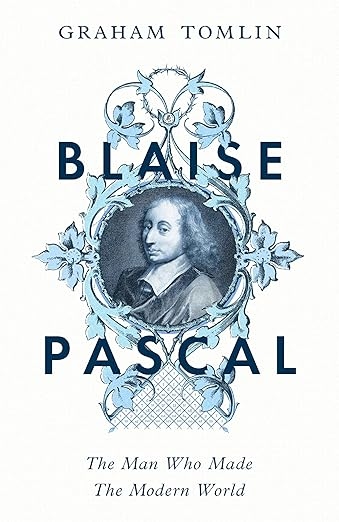Blaise Pascal: the man who made the modern world, by Graham Tomlin
'An enjoyable and absorbing read with plenty of prompting for those willing to ask deeper questions'
 Blaise Pascal: the man who made the Modern World
Blaise Pascal: the man who made the Modern World
By Graham Tomlin
Hodder & Stoughton
ISBN: 978-1-399-80764-7
Reviewed by Stephen Copson
Blaise Pascal was a 17th century superstar. An innovator in fields as diverse as physics, hydraulics, proto-computing and a Parisian bus service, he was a perceptive philosopher, a controversialist and a creative theologian. And yet his star waned after his early death. Rather than someone who made the modern world, maybe it would be more accurate to say that without Pascal’s contributions, the modern world would look quite different.
Pascal had a biting wit and was often uncomfortable to be around. His writings on philosophy and religion took no prisoners. Neither did they win him too many friends. He challenged powerful figures in Church and State, and ended on the side of the losers. He died at the age of 39 leaving a host of what ifs...
A man with an enquiring mind and a knack of solving problems, Pascal’s faith was rooted not only in European Catholic traditions but equally shaped by a quasi-mystical experience that drove his passion for helping others find the living God.
Best known for the posthumously published editions of his Pensées on religion, his Wager and his Triangle, Pascal’s life and thought are given context by the author in 17th century French politics, social and technological changes and the Church. Tomlin is adept at explaining complex issues in an easy-to-grasp way.
Tomlin is not simply reclaiming a 17th century genius. He presents Pascal as a person whose interests often intersect with contemporary Western cultures. He sees parallels with Pascal’s dispute with Descartes about reducing truth to empirical investigation only, and the search for the spiritual quest today.
In his writings against the Jesuits, Pascal assesses what he sees as willingness to dumb down the cost of faith to connect with the masses but also censures the Jansenists for doubling down on traditions and practices that exclude. What makes Christianity attractive? And as he sees his society obsessed by distractions but missing the really big issues, he poses questions about our world overwhelmed with information but lacking discernment.
Graham Tomlin is currently President of (the Anglican) St Mellitus College, and previously Bishop of Kensington. If he dusts off Pascal’s reputation, he will have done us all a service. This is an enjoyable and absorbing read with plenty of prompting for those willing to ask deeper questions.
Stephen Copson is a Baptist minister in retirement living in Hertfordshire
Baptist Times, 04/07/2025